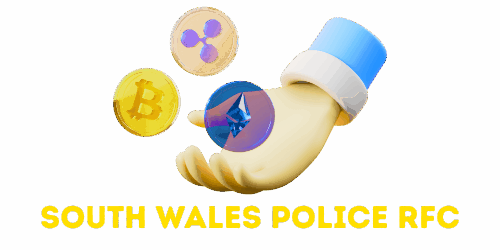In today’s fast-paced digital landscape, staying informed about digital assets is essential. As cryptocurrencies, NFTs, and blockchain technologies continue to evolve, they reshape the financial and creative sectors. Keeping up with the latest developments can provide valuable insights for investors, creators, and enthusiasts alike.
Digital asset news serves as a gateway to understanding these innovations, offering updates on market trends, regulatory changes, and emerging technologies. Whether someone is a seasoned investor or just curious about the digital economy, having access to accurate and timely information is crucial in navigating this dynamic environment.
Table of Contents
ToggleOverview of Digital Asset News
Digital asset news encompasses a variety of topics including cryptocurrency developments, non-fungible tokens (NFTs), and blockchain technology updates. Staying informed helps individuals understand fluctuations in the market and emerging trends.
Key topics in digital asset news include:
- Market Analysis: Reports on price movements of major cryptocurrencies, such as Bitcoin and Ethereum, provide insights into investor sentiment and market stability.
- Regulatory Updates: Changes in legislation affect how digital assets are treated legally and can significantly influence market behavior.
- Technological Innovations: Advancements in blockchain technology often lead to new applications and increased efficiency in various sectors, from finance to art.
- Investment Trends: Monitoring which assets are gaining popularity among institutional and retail investors helps predict future market shifts.
- Security Developments: Information on security breaches, hacks, and protective measures is crucial for safeguarding digital investments.
Accessing reliable sources for digital asset news ensures investors, creators, and enthusiasts receive up-to-date information to maximize opportunities within this evolving landscape.
Current Trends in Digital Assets

Current trends in digital assets indicate significant shifts in investor behavior, legislation, and market dynamics. Keeping abreast of these changes is vital for anyone engaged in the digital asset space.
Rise of Cryptocurrency
Cryptocurrency continues to gain traction as mainstream acceptance increases. Many institutional investors, including hedge funds and corporations, allocate capital to digital currencies like Bitcoin and Ethereum. These investments often stem from the desire for portfolio diversification and the potential for high returns. Recent data shows that Bitcoin’s market capitalization has exceeded $500 billion, with over 20,000 cryptocurrencies traded actively. Additionally, peer-to-peer transactions and decentralized finance (DeFi) applications are on the rise, enhancing accessibility and usage. Innovations like Layer 2 solutions and cross-chain integrations further improve transaction speed and lower costs.
Regulatory Developments
Regulatory frameworks are evolving as governments worldwide scrutinize digital asset markets. The U.S. Securities and Exchange Commission (SEC) and the European Union (EU) are proposing new regulations for digital asset exchanges and initial coin offerings (ICOs). Recent updates highlight the increasing focus on consumer protection and anti-money laundering (AML) measures. In 2023, the EU implemented the Markets in Crypto-Assets (MiCA) regulation to create a unified framework for member states. Similar regulatory efforts are observed in countries like Canada and Singapore, signaling a global push towards standardization. Understanding these changes is crucial for investors, as compliance impacts market operations and investment strategies.
Major Players in the Digital Asset Space
Understanding the key players in the digital asset market is crucial for navigating this rapidly evolving landscape. Prominent exchanges, trading platforms, and institutional investors significantly influence market dynamics.
Exchanges and Trading Platforms
Exchanges and trading platforms serve as the primary venues for buying, selling, and trading digital assets. Major exchanges include:
- Coinbase: A leading platform in the U.S., offering a user-friendly interface and a wide range of cryptocurrencies.
- Binance: The world’s largest exchange by trading volume, known for its extensive selection of digital assets and competitive fees.
- Kraken: A respected exchange renowned for its security features and advanced trading options, appealing to both beginners and experienced traders.
These platforms generate significant volume and liquidity, directly impacting asset prices. Staying updated on exchange activities helps investors understand market trends and price movements.
Institutional Investors
Institutional investors play an increasingly vital role in the digital asset space, driving market acceptance and stability. Key institutions include:
- Grayscale Investments: The largest digital asset manager, offering various cryptocurrency investment products, including the Grayscale Bitcoin Trust.
- Fidelity Investments: A major financial services firm providing cryptocurrency custody solutions and a digital assets trading platform for institutional clients.
- BlackRock: The world’s largest asset manager, exploring Bitcoin futures and digital assets, signaling institutional interest and confidence.
These institutions enhance market legitimacy, encourage regulatory clarity, and attract retail investors. Their involvement often leads to increased market maturity and larger capital influxes into the digital asset market.
Key Challenges Facing Digital Assets
Digital assets face several key challenges, impacting their adoption and stability. Understanding these challenges is essential for anyone involved in the digital asset space.
Security and Fraud Issues
Security remains a paramount concern in the digital asset landscape. Cyberattacks target exchanges and wallets regularly, with notable incidents leading to substantial financial losses. In 2021 alone, over $2.8 billion was stolen from various platforms due to hacking incidents. Additionally, scams involving phishing tactics and fraudulent initial coin offerings (ICOs) continue to emerge, exploiting investor naivety. According to the FBI, reported losses from cryptocurrency scams exceeded $2.4 billion in 2021, highlighting the need for heightened vigilance. Implementing robust security measures, such as multi-factor authentication and cold storage solutions, becomes critical in safeguarding digital assets.
Market Volatility
Market volatility poses another significant challenge for digital assets. Price fluctuations can be extreme, often resulting from speculative trading and market sentiment shifts. For example, Bitcoin’s price experienced a dramatic decline of over 50% in early 2022, demonstrating the volatile nature of the market. This unpredictability can deter institutional investors and retail participants alike, as they seek stable investment options. Furthermore, external factors, including regulatory news or macroeconomic trends, can trigger sudden market movements, complicating investment strategies. Continuous monitoring of market indicators and developing risk management strategies are vital to navigating this turbulent landscape.
Future Outlook for Digital Asset News
Digital asset news is poised for significant transformation as technology continues to evolve. Innovations in artificial intelligence and machine learning are set to revolutionize data analysis, enhancing the accuracy of market predictions. Sophisticated algorithms may allow news platforms to provide quicker insights into market shifts, thereby empowering investors and creators.
Market dynamics will likely reflect increased diversification of digital assets. The emergence of alternative cryptocurrencies and decentralized finance (DeFi) will expand the landscape of investment options. Reports indicate that by 2025, the DeFi market could reach $800 billion in total value locked. This growth requires consistent coverage to keep stakeholders informed of new trends and opportunities.
Regulatory frameworks will also impact the future of digital asset news. As governments worldwide adopt clearer regulations, reporting standards will evolve. Improved regulations may enhance market transparency, fostering greater trust among participants. Anticipated regulations, such as the EU’s MiCA, will provide a comprehensive legal structure, influencing how news platforms report on compliance and risk.
Technological advancements in blockchain will continue to drive interest. Research shows that 77% of financial institutions are expected to adopt blockchain technology within the next four years. Breakthroughs in scalability and interoperability will facilitate broader adoption, resulting in abundant coverage of success stories and case studies.
Security measures will be critical as cyber threats persist. The rise in targeted attacks on exchanges highlights a pressing need for robust reporting on security advancements. Discussions about multi-signature wallets, decentralized identity solutions, and insurance for digital assets will become essential components of news coverage.
Sustainability trends in the digital asset space are increasingly relevant. As environmental concerns grow, the move towards greener alternatives, such as proof-of-stake protocols, will necessitate coverage on their impact. Reports indicate that Ethereum aims to reduce its energy consumption by over 99% with its transition to Ethereum 2.0.
These factors all indicate a future rich with developments and opportunities in the digital asset news landscape.
Staying informed about digital assets is essential for anyone navigating this evolving landscape. The rapid advancements in technology and regulatory frameworks are reshaping how investors and creators engage with cryptocurrencies and blockchain.
As market dynamics shift and new opportunities arise, accessing reliable news sources becomes crucial for making informed decisions. The future of digital assets promises exciting developments, from enhanced security measures to the integration of artificial intelligence in market analysis.
Embracing these changes will empower individuals to seize opportunities while mitigating risks in this fast-paced environment. With the right knowledge and resources, the potential for growth in the digital asset space remains significant.








